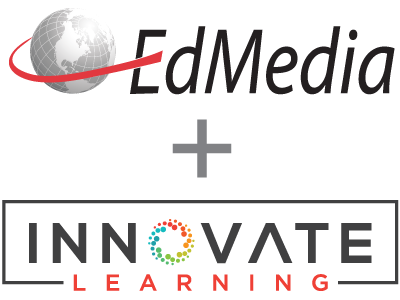
Perceived Usability of Social Software Enabling Self-Directed Learning
PROCEEDINGS
Anh Vu Nguyen-Ngoc, Effie Lai-Chong Law, University of Leicester, United Kingdom
EdMedia + Innovate Learning, in Vienna, Austria ISBN 978-1-880094-65-5 Publisher: Association for the Advancement of Computing in Education (AACE), Waynesville, NC
Abstract
In this paper we report our idea of supporting self-directed learning (SDL) with a selection of social software tools, given the assumption that SDL competence can be enhanced by group learning activities. The concomitant research concern is to explore how usable and useful these tools are for fostering online communication and for supporting the development of learning contract. To address this issue, we have developed a simple instrument – tool usage statements - based on the core usability concepts and augmented Technology Acceptance Model (TAM). The instrument was administered at the middle and the end of a three-month user trial. Results showed that the changes in the perceived usability, user experience and acceptance were insignificant, though in general they were on the increasing trend. Some interesting observations about the participants’ preference for Weblog to iLogue – an application tailored made for supporting the development of learning contract – were analyzed. It is deemed relevant to improve the instrument and to further explore other remote evaluation methods.
Citation
Nguyen-Ngoc, A.V. & Law, E.L.C. (2008). Perceived Usability of Social Software Enabling Self-Directed Learning. In J. Luca & E. Weippl (Eds.), Proceedings of ED-MEDIA 2008--World Conference on Educational Multimedia, Hypermedia & Telecommunications (pp. 1449-1458). Vienna, Austria: Association for the Advancement of Computing in Education (AACE). Retrieved August 10, 2024 from https://www.learntechlib.org/primary/p/28573/.
© 2008 Association for the Advancement of Computing in Education (AACE)
Keywords
References
View References & Citations Map- Candy, P. (2004). Linking thinking– self-directed learning in digital age (Online accessed on 08/01/08) Davis, F.D. 1989. Perceived usefulness, perceived ease of use and user acceptance of information technology. MIS Quarterly, 13 (3), 319-340.
- Fiedler, S., & Pata, K. (2007). Towards an environment design model for iCamp space (D1.2). Online at: http://www.icamp.eu
- Law, E.L-C., Hvannberg, E.T., & Hassenzahl, M. (2006). Towards a Unified View of User Experience (UX). Proceedings of 2nd International COST294-MAUSE Open Workshop, 14th October 2006, Oslo, Norway (in conjunction with NordiCHI’06). Online at: http://www.cost294.org/ Nielsen, J. (1993). Usability engineering. New York: Academic Press.
- Paterno, F., & Santoro, C. (2008). Remote Usability Evaluation: Discussion of a General Framework and Experiences from Research with a Specific Tool. In Law, E., Hvnannberg, E., & Cockton, C. (Eds), Maturing usability: Quality in software, interaction and value. London: Springer.
- Venkatesh, V. (2000). Determinants of perceived ease of use: Integrating control, intrinsic motivation, and emotion into the Technology Acceptance Model. Information Systems Research, 11(4), 342-365.
These references have been extracted automatically and may have some errors. Signed in users can suggest corrections to these mistakes.
Suggest Corrections to References